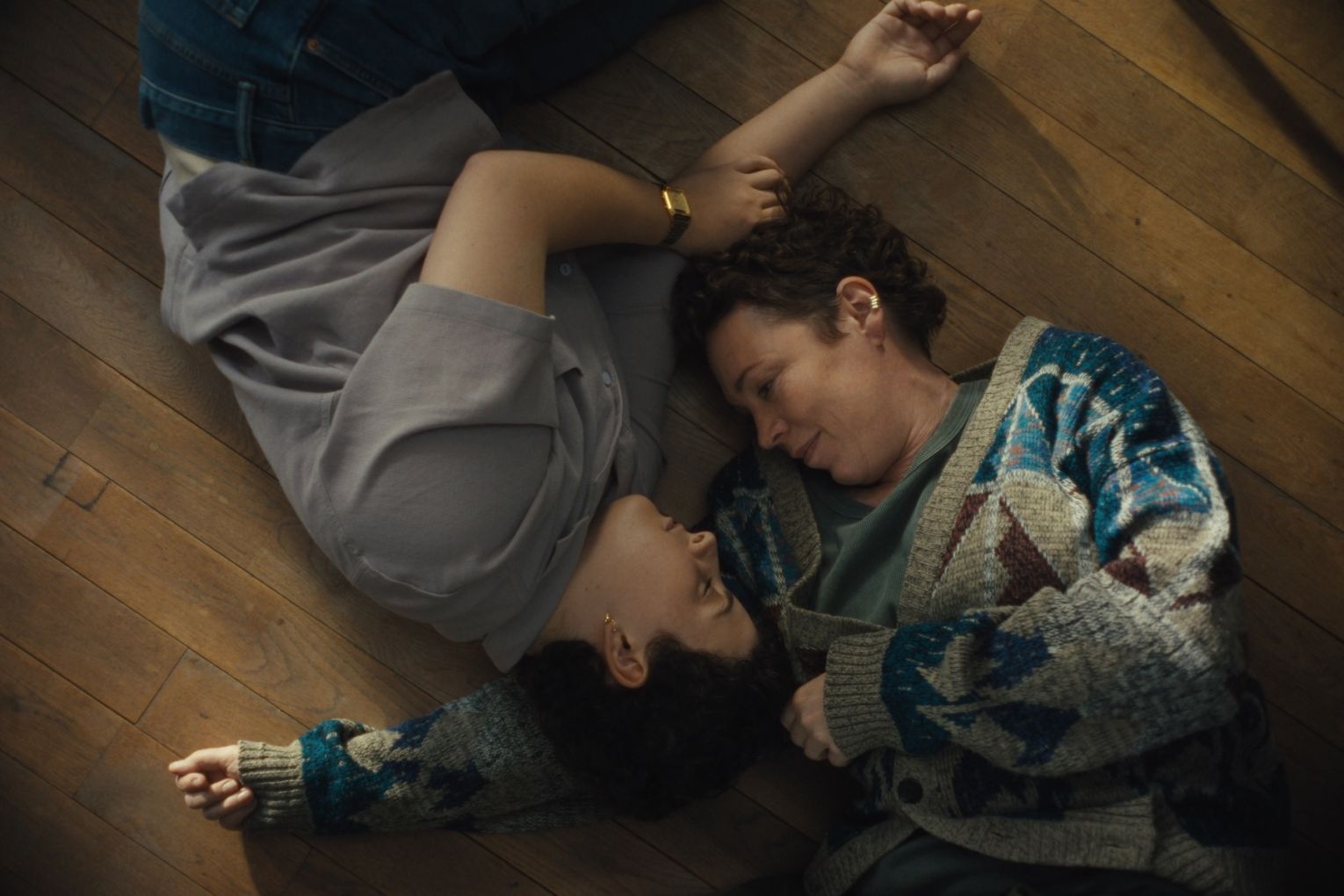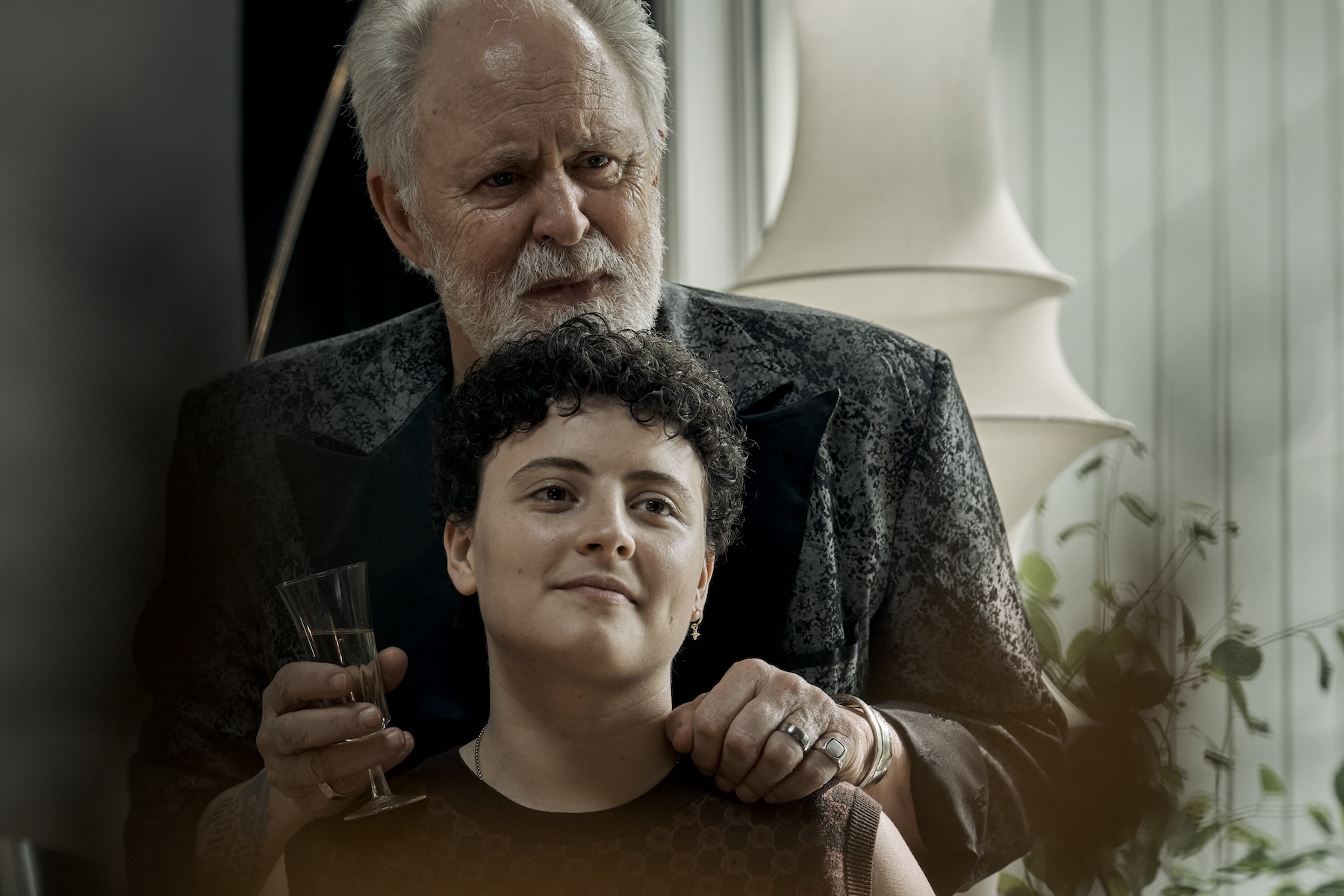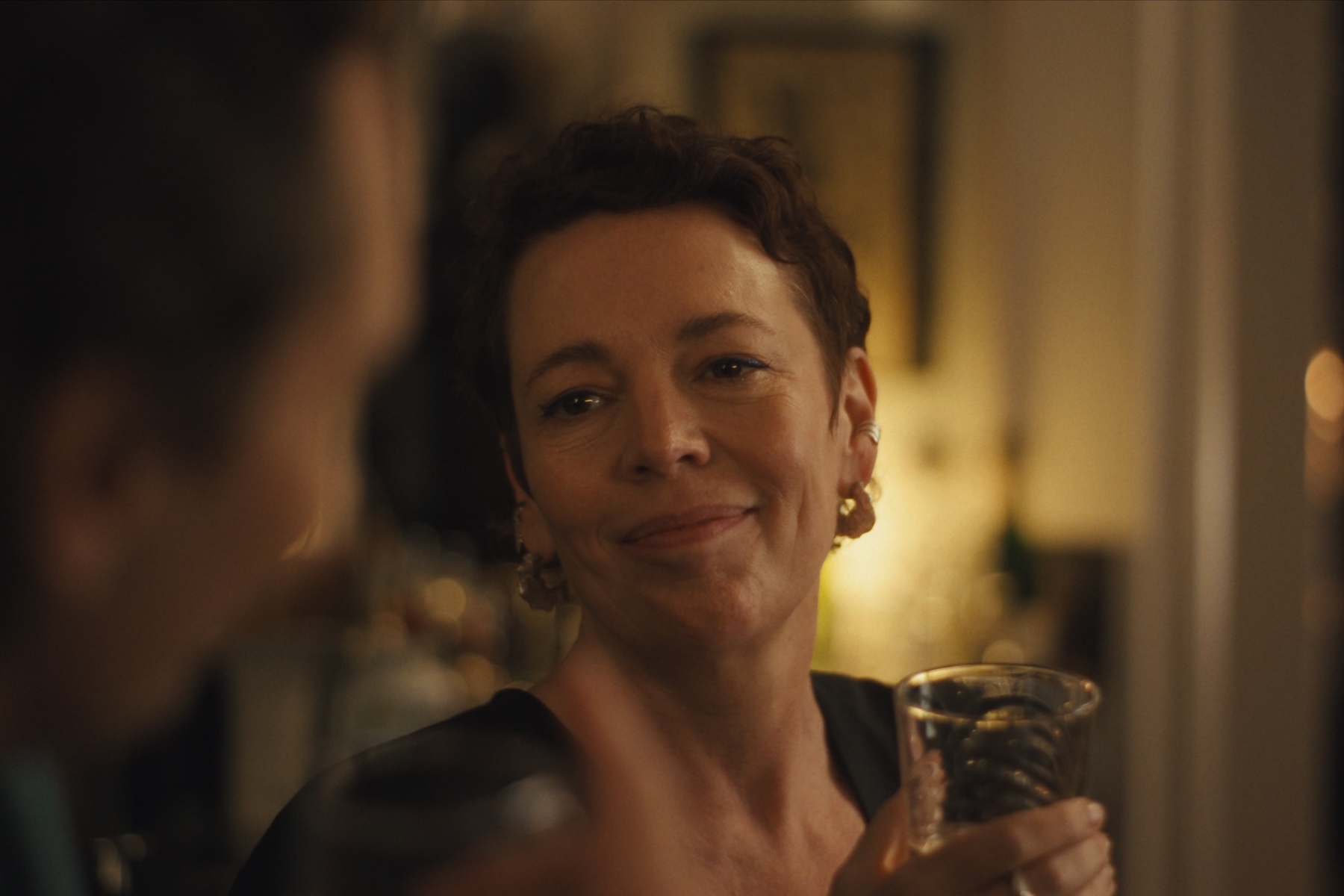Adelaide Film Festival premiere: Sophie Hyde on Jimpa, queer families, and Olivia Colman
Adelaide filmmaker Sophie Hyde’s new film Jimpa fictionalises the intergenerational queer experiences of her own family, in a star-studded “companion piece” to her low-budget debut. It makes its Australian premiere debut on Wednesday at the Adelaide Film Festival opening gala.

When Sophie Hyde’s father Jim died in 2018, the director was left pondering what might have been.
Her father had come out when she was a child, and like many LGBTQIA+ people eventually left Adelaide and their family for the more cosmopolitan outlook of the eastern states. Back in Adelaide, Sophie’s own child, Aud Mason-Hyde, had begun to take their first steps as a young queer person by the time of Jim’s death.
“The first impulse was I really wished that they could have been in a room together, to talk about what it’s like to be a public figure that’s queer,” Hyde tells InReview over coffee at Exchange in Adelaide’s East End.
“Because Aud was starting to do a lot more talks and speak really openly about it, and explore their non-binary transness publicly. And my dad was the same; he was so outspoken and out loud about his queerness, and fought really hard.”
She floated this imagined conversation to screenwriter and longtime collaborator Matthew Cormack, a story that eventually took shape as Hyde’s fourth feature film, Jimpa.
In the film, we meet Hannah (Olivia Colman), an Adelaide filmmaker who, like Hyde, is trying to get a project about her family off the ground. A visit to her aging activist and academic father Jim (John Lithgow) in Amsterdam is further complicated when Hannah’s teenage child Frances (played by Aud Mason-Hyde, who helped develop the story and character) announces their plan to stay with ‘Jimpa’ in Amsterdam.

You might like
The conflict-averse Hannah decides to let this clearly unworkable situation play out, and as Jim navigates the frustrations of old age, and Frances charts their own queer coming of age trajectory, the film gently unspools the tensions across these generations (Frances has “all the words” but none of the experience, while Jim bemoans how “we’re all text now, no subtext”).
In its reflection on family, identity and understanding, Hyde says Jimpa is in many is a companion piece to her feature debut 52 Tuesdays. A Sundance hit in 2013, the film offered a naturalistic portrait of a parent (Del Herbert-Jane) and child (Tilda Cobham-Hervey) as the former embarked on a year-long gender transition.
"The idea of transness was quite foreign to a lot of people, and we didn’t have words like ‘non-binary’ … we had to explain language in a whole other way, and understand it in a whole other way ourselves."
“The idea of transness was quite foreign to a lot of people, and we didn’t have words like ‘non-binary’, we used the term ‘gender non-conforming’,” Hyde says of making 52 Tuesdays. “We had to explain language in a whole other way, and understand it in a whole other way ourselves.
“When we started to make Jimpa, we were making it in a climate that we thought was like, ‘Oh, things have changed … we’re at a point where we need to start exploring nuance within this idea, and celebrating our shared histories and the future that we might have. And then, of course, we just step into the now… and there’s just massive attacks against all of the LGBT communities, but particularly trans people.
“The idea of visibility is such a double-edged sword; that visibility is there so that young people can see paths, and name things that they didn’t know there are names for, and see futures that they might not have believed in. But visibility is so dangerous in a moment like this, you know?”

In one subtle but moving component of Jimpa, Hyde uses fleeting montages to convey not only Jim and Hannah’s backstories, but many of the older characters in their orbit – hinting and a breadth of experience, love, loss and community beyond the core family.
Subscribe for updates
“I felt really strongly that it needed these elements,” Hyde says of these scenes, which were largely filmed in Adelaide. “It would have been so easy to strip those out – I think we did 70 flashbacks of different scenes in a week.
“I came from documentary, and when I think about how you tell a story, I think about the idea that what’s outside of the frame is as important as what’s inside, so that you don’t want to totalise the story. You don’t want to say, ‘This is the story’, and that’s what the whole film is about, too.
"I hope it’s an invitation to the audience to be like, ‘We all have lives and families. We’re not a monolith like, you know, everyone is having a different version of this."
“I hope it’s an invitation to the audience to be like, ‘We all have lives and families. We’re not a monolith like, you know, everyone is having a different version of this.”
There are other subtle reminders of how things have changed since 52 Tuesdays. While that film featured a cast of largely unknown Adelaide locals, Hyde’s last film, 2022’s Good Luck to You, Leo Grande saw her work with British film royalty Emma Thompson, before luring Colman to Adelaide for Jimpa’s opening scenes in 2024.
Casting a heavyweight like Colman as a fictionalised version of yourself is, by any measure, an incredible flex. But Hyde says despite appearances Hannah – and her frustrated fixation on prioritising “kindness rather than conflict” as a parent and filmmaker – is one of the film’s bigger breaks from life.

“In some ways, that was the character that I always felt was least taken from life – but maybe that’s just because it’s me,” she laughs.
“You call someone like Olivia because of who she is and what she brings, so there’s no sense of being protective of a character.”
Hyde says Colman was nervous about leaving her family and home to shoot in Adelaide, including one scene at this very East End café, which stands in for an Amsterdam eatery in the film.
“She gets homesick, and she misses her family a great deal … but she went for it. And you know, we went and hugged a koala called Florence on her first day, did a lot of beautiful food experiences, tried to make it as pleasurable as we could.
“If I could, I would bring all the great actors here and work like,” Hyde reflects. “I love working here, and don’t get to do it much.”
Jimpa will make its Australian premiere on Wednesday October 15 as the 2026 Adelaide Film Festival opening gala, before screening nationally
Free to share
This article may be shared online or in print under a Creative Commons licence

